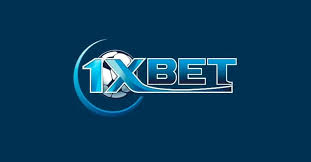
Getting involved in sports wagering can be exciting, but success depends more on discipline and process than on luck. For many who enter the market, the difference between a hobbyist and a profitable bettor is methodical research, sound money management and emotional control. If you’re exploring platforms or mobile solutions, consider checking the sport bet 1xbet app as one of the available options; however, choosing a platform should be only one part of a larger, consistent approach to sport bet activities.
Sports betting has evolved from casual score predictions into a sophisticated field where analytics, market efficiency and psychological factors determine outcomes for individual bettors. Professional bettors don’t chase wins; they chase positive expected value (EV). That means making bets where the probability of an outcome is greater than the implied probability reflected in the bookmaker’s odds. Learning to identify EV opportunities is the foundation of any long-term strategy.
Start by understanding basic odds formats—decimal, fractional and American—and how they convert to implied probabilities. Then, focus on a few sports and markets where you can develop expertise. Specialization matters: knowing team tendencies, injury news, travel schedules, and matchup specifics gives you an informational edge. Data-driven bettors combine public statistics with situational factors to build better predictions.
Bankroll management is the second pillar of sustainable sport bet practice. Treat your betting funds as an investment portfolio, not disposable income. A common approach is the flat-percentage staking model: risking a fixed percentage of your current bankroll on each wager. This automatically scales bet size to current performance and limits ruin risk. Conservative bettors might choose 1–2% stakes, while more aggressive profiles might use 3–5%. Whatever the percentage, consistency is crucial to survive variance and capitalize on long-term edges.

Value spotting requires both quantitative tools and qualitative judgment. Use models to estimate true probabilities: Poisson regressions for goal-based sports, Elo ratings adapted for leagues, or machine learning models that integrate many features. Compare your model’s probabilities with bookmaker odds to calculate value. Remember that bookmakers factor in market demand and margin, so prices can sometimes be skewed. Be especially attentive to early market inefficiencies—line movement is often informative about public and sharp action.
Line shopping is a practical step often overlooked by beginners. Small differences in odds across bookmakers can compound over time. Open accounts with several reputable sportsbooks and use odds comparison tools to secure the best available price for each wager. The difference between +110 and -110 on multiple bets or futures can materially affect long-term ROI.
Live betting presents both opportunities and hazards. On the plus side, live markets can expose temporary mispricings due to shifting sentiment and latency. If your model or intuition can quickly interpret in-game dynamics—momentum swings, tactical adjustments, or fatigue-related declines—you can exploit favorable odds. On the downside, live betting encourages impulsive behavior, so enforce strict rules: predefined triggers for placing in-play bets, maximum stake sizes, and pre-set exit criteria.
Psychology is as important as analysis. Avoid tilt—the state of emotional decision-making after losses—by maintaining a disciplined regimen. Keep a betting journal documenting stakes, rationale, outcome and lessons. Regular review helps identify leaks in strategy, such as recurring biases toward favorite teams or overconfidence in predictions after a winning streak. Humility and adaptability are critical traits for long-term profitability.
Managing variance requires patience and realistic expectations. Even with a positive expected value, losing streaks are normal. Use Kelly-based sizing if you have reliable probability estimates and are comfortable with dynamic stakes, but be cautious: full Kelly can be volatile. Many professionals use a fractional Kelly, balancing growth and drawdown tolerance. Set personal thresholds: maximum acceptable losing streak, stop-loss limits, and periodic performance reviews to decide if strategy adjustments are needed.

Information and timing matter. Line changes often reflect late-breaking news—injuries, lineup decisions, weather, or insider bets. Monitor trusted sources and maintain discipline about last-minute moves. Sometimes the best bet is to avoid late action if you cannot verify the information quickly. Conversely, being prepared to act when you have verified, high-quality information can yield significant edge.
Responsible gambling is non-negotiable. Only risk money you can afford to lose and be attentive to signs of problem behavior—chasing losses, increasing stakes after poor sessions, or neglecting responsibilities. Use account limits, self-exclusion tools, and regular self-assessment to keep your betting sustainable. Remember that entertainment value and the production of careful analysis should be balanced with financial prudence.
Tools and technology make modern sport bet strategies more accessible. Odds aggregators, statistical databases, model-building libraries and automated bet placement via APIs can improve efficiency. But technology is only as useful as the assumptions it encodes. Continually validate models with out-of-sample testing and maintain skepticism about backtests that do not account for market impact, transaction costs and human fallibility.
For those considering professional paths, building a track record matters. Documented ROI, variance metrics and clear process descriptions help you evolve from discretionary betting to a systematic operation. Collaboration with other analysts, sharing ideas in small advisory groups, and participating in exchange markets where available can refine your edge and expand perspectives.
In closing, sport bet success blends statistical rigor, disciplined money management and psychological resilience. Whether you are a casual bettor looking to improve or an aspiring professional, focus on continuous learning, honest record-keeping and responsible practices. The sports betting landscape rewards those who treat it as a long-term endeavor rather than a shortcut to quick wins.
